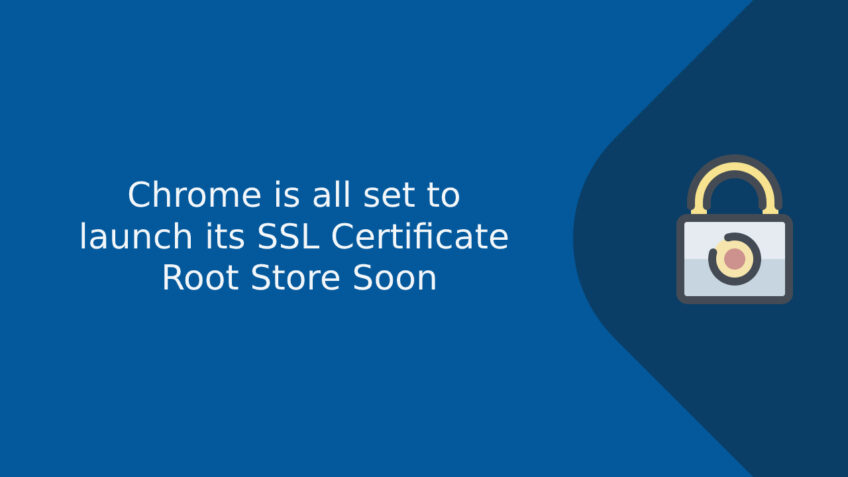Last Updated on December 3, 2023
Everyone prefers to be safe on the Internet but many don’t know the exact perspectives of what goes on behind the scenes for the internet browsers to be made safe for the users. Keeping strong passwords is just one part of the puzzle, but what happens to the device when the information is passed through the browser and endpoint website resulting in personal information being exposed? That is where SSL certificates come into the picture!
- What are the Security Certificates?
An SSL is a digital certificate that gives authentication and enables an encrypted connection. For instance, HTTPS stands for HyperText Transfer Protocol Secure meaning that it has a valid SSL certificate. Likewise, the user comes to know that the data is moving securely back and forth between the site and you. It means that you are 100% safe in browsing a secure Internet.
Google Search Engine has announced that it is soon going to launch its root store in the Chrome browser in the near future. Firefox had its own systems for quite some time. A root store is required to validate and verify the certificates. With an encrypted HTTPS connection established, the browser will check whether the SSL certificate was generated by the certificate itself from the root store. This means that the connection established between the user and the requested page is not compromised as part of the middle track.
- Why do SSL certificates matter?
Chrome is always going to continue to check the certificates and they will alert the users whether the browsing is secured or not. If any circumstance arises where a certificate that is provided is compromised or even the CA platform is not disturbed, Chrome can move swiftly to remove all the related certificates from the root store. This allows in giving the developers to keep the users safe.
Chrome to use the root program
Chrome has been using the root program out of the operating system on which the browser has been running to launch in 2009. While the Microsoft Trusted Root Program is used only for the Windows system, the Apple Root Certificate Program has been used on MAC OS. Google has recently announced that the browser will soon be having its root store with the Chrome Root Program. The function will be available soon on all the Chrome versions except the iOS version.
No date for the schedule is known yet
The change is going to take place fast, but yet the date has not been clear yet. There has been no official schedule. With the root store, Google is going to follow the same procedure as Mozilla in the near future. Firefox has already been using its database to validate for all the SSL certificates related to HTTPS connections.
Most of the certificates that will be used are issued currently by trusted CAs and added to the transitional root store. Many of these certificates have been pulled from the common CA database used by Mozilla.


